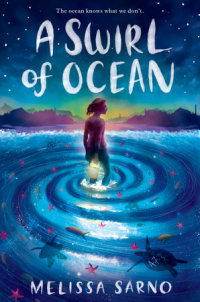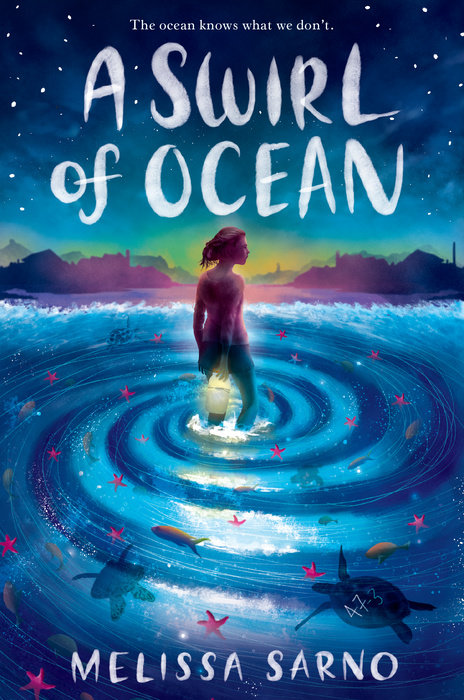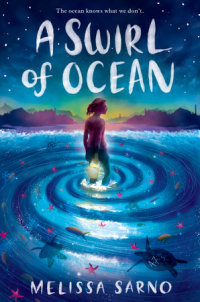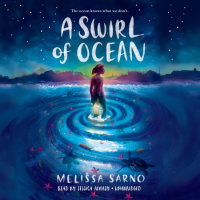High Tide, 11:06 a.m.
“It’s way too cold.” Lindy slings her boots over her shoulder and skirts the ocean water as fast she can, her toes and their chipped polish dancing away.
I stand flat-footed at the shore, letting the cool water wash over my feet. “Scaredy-cat.”
Lindy laughs, but then she gets the look she always gets in her eyes when we’re together at the water. Something sad and far-off. Something I can’t get at. She always says you can’t trust the ocean.
When I wondered why someone who didn’t trust the ocean lived right up next to it, she only said it’s better to keep a close eye on something you can’t trust.
Maybe it has something to do with Lindy finding me here ten years ago. Right on this shore.
She saw me in the morning, my hair wet and wound with seaweed as I sat on the beach. I was two years old. She was twenty. I wore nothing but my moon snail necklace…
High Tide, 11:06 a.m.
“It’s way too cold.” Lindy slings her boots over her shoulder and skirts the ocean water as fast she can, her toes and their chipped polish dancing away.
I stand flat-footed at the shore, letting the cool water wash over my feet. “Scaredy-cat.”
Lindy laughs, but then she gets the look she always gets in her eyes when we’re together at the water. Something sad and far-off. Something I can’t get at. She always says you can’t trust the ocean.
When I wondered why someone who didn’t trust the ocean lived right up next to it, she only said it’s better to keep a close eye on something you can’t trust.
Maybe it has something to do with Lindy finding me here ten years ago. Right on this shore.
She saw me in the morning, my hair wet and wound with seaweed as I sat on the beach. I was two years old. She was twenty. I wore nothing but my moon snail necklace and a bathing suit. There was no one up or down the sand. She called the paramedics first, to make sure I was okay. Then the police. They took me to the hospital, where the doctors examined me and the detectives asked their questions. They sat me on an examination table, and I banged my feet against the tinny base. Lindy said the clanging set her own heart racing; she was scared they wouldn’t figure out where I came from and then scared because she knew I was already where I belonged. With her. And what did she know about taking care of a two-year-old?
But the days, she said, kept warming me toward her, the way I took her pinkie and led her around, the way I emptied her jigsaw puzzles and spread myself in the pieces, shrieking as I tossed them up like snow. She said I guided her to the shore and crouched down low, scooping up sand and shells, and pointing at seagulls. That was the thing, she said, about being only a couple years in and brand-new to the world. I came and let her see it new.
Still, I’ve asked her a thousand times why she took me, a girl alive but left for dead. She always smiles, says it like it’s nothing, “I figured you were mine.”
And I have been hers, ever since, my whole life, but for two years when I was somebody nobody else seems to have known.
As I sink deeper and deeper into the sand, Lindy’s elbows jut from her stick arms and her bony hips tick from side to side. She never let me call her Mom because she always said the two of us were more like sisters than anything else. But we’re eighteen years apart and I look nothing like her. Solid rock is what she calls me. Others call me sturdy. Lindy, on the other hand, is like some kind of twig ready to snap. Her hair is as short as mine is long, all spiky and stick-uppy and not caring which direction it’s going. She wears a leather cuff at her wrist and all black no matter how sunny it is. My boy shorts and breezy hair seem so plain next to her.
She drops her lace‑up boots in the bucket. I hear the shells clack against the tin.
I snatch the bucket from her hands and sigh. “I think I’m done for the season.” It’s the middle of September, and I only sold one shell necklace for the day. An oyster shell I painted turquoise with gold trim.
The breeze yawns over me just as the sun looks away. Everybody else might be gone until next summer, but we live here year-round, on the long, skinny strip of land we call ours, between the ocean and the bay. The ocean is the only thing coming and the only thing going.
“So, what are you thinking?” she asks.
I know what she’s asking without her having to say, the same thing she’s been wondering since she first brought it up yesterday, about Elder Glynn and his yapping dog moving in with us.
I don’t know. I mean, she used to say there was never anyone in Barnes Bluff that she would give the time of day, and now all of a sudden she’s talking about a boyfriend moving in.
I want to tell her it’s fine. I want to make her happy. But Elder? I don’t understand why she’s leaving it up to me.
“Don’t you think there’s something a little funny about him?” I ask.
“He makes me laugh,” she offers.
“I mean funny-strange. That kind of funny.”
“Everybody’s strange.”
“He can’t even control his eight-pound dog,” I say.
She laughs.
I swallow hard. “Wouldn’t it be better if he left us alone?”
She frowns. “I don’t know. We’ve been alone for a long time, Summer.”
“I like it that way,” I say.
“Well, we don’t have to decide right now,” she says.
I can tell she’s disappointed, but she forces a little smile. “Come on.” She reaches for my hand, and we walk to the boardwalk.
Usually we’d visit the souvenir shops and browse T‑shirts, then point out the weirdest ones we could find. I still have a worn-out tee of a hamburger and hot dog holding hands, and I half snorted when Lindy named the burger Patty. But the shops are already closed for the season, and the boardwalk is nearly empty. A tall man stands at a wooden post, overlooking the beach. He’s out of place in a corduroy blazer, with a notebook sticking out of the breast pocket.
Lindy watches him, her brow furrowed.
“What?” I wonder out loud.
Words stick to her tongue, then she shakes her head like she’s shaking off sand. She shrugs and turns away from the stranger. Her eyes brighten like a little kid’s, because Lindy may look like she’s all bone-sharp and full of jagged angles, but she’s mush-soft inside.
I know what she’s thinking before she says it.
“We could get glitter moon sprinkles.” She grins.
“Purple pumpkin,” I offer.
“Buttercream sea foam.”
“Sunbeam buttercrunch.”
“Popsicle rainbow.”
“Ham and egg Cracker Jack?”
Lindy wrinkles her nose with a “No thank you,” and we both bust out laughing as we climb the steps to the boardwalk toward Old Crocker’s ice cream cart, where none of our made‑up flavors are ever there and Crocker scoops vanilla or chocolate only. There are no swirls or sprinkles or even cones. And the ice cream comes in a flimsy tan cup with a wooden spoon.
But Crocker grabs our quarters with his soft, shaky hands and knows without us having to say that I want vanilla and Lindy wants chocolate, and, somehow, when it melts on our tongues, it is the creamiest, sweetest-tasting ice cream we’ve ever had.
Lindy happy-groans as she takes her first bite, and we both sink to the bench, right next to his weathered umbrella, because you can’t eat Old Crocker’s ice cream unless you’re sitting down.
I set the bucket at our bare feet and let the cool vanilla slide down my throat.
“You closing up shop?” Lindy asks.
Crocker’s voice is quiet. “Tomorrow.”
“We’ll miss you,” I say.
There’s not a hint of a smile past his cracked lips, just his way of looking up and out at the sand, the shore, and the sky. “I’ll be back.”
I tuck my head on Lindy’s shoulder and breathe the smooth salty air.



